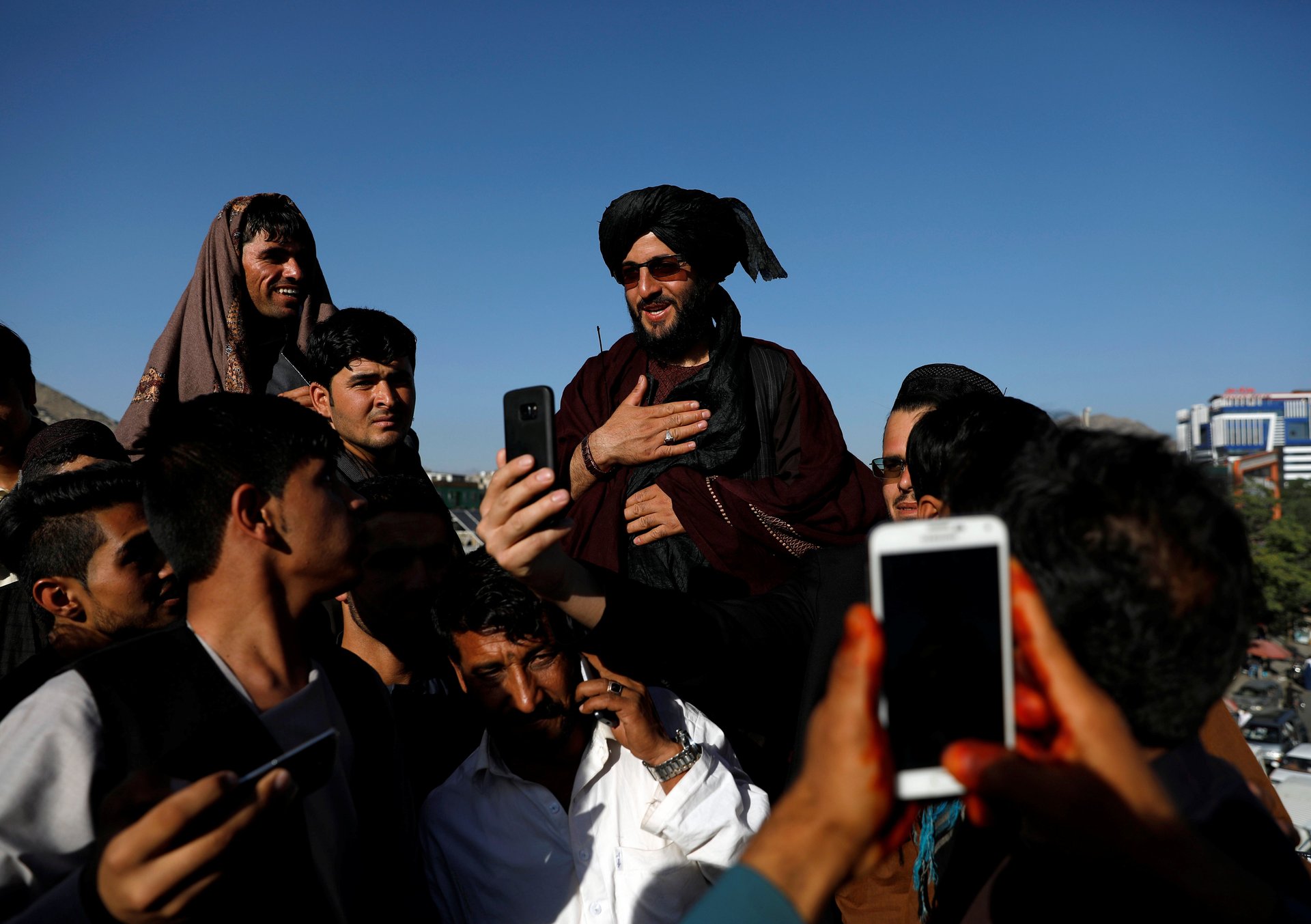The Taliban swears it’s chill now
On Sept. 27, 1996, after three days of fighting in Kabul, the Taliban abducted former president of Afghanistan Mohammad Najibullah and tortured, shot, and hanged him in front of the presidential palace. Their jurisprudence closed girls’ schools, banned music, and resulted in public amputations and executions. It marked the beginning of the Afghan civil war, and lasted until the Taliban’s 2001 ousting by an American-led invasion of the country.


On Sept. 27, 1996, after three days of fighting in Kabul, the Taliban abducted former president of Afghanistan Mohammad Najibullah and tortured, shot, and hanged him in front of the presidential palace. Their jurisprudence closed girls’ schools, banned music, and resulted in public amputations and executions. It marked the beginning of the Afghan civil war, and lasted until the Taliban’s 2001 ousting by an American-led invasion of the country.
Today, the Taliban says that’s all history.
After 17 years of conflict in the region, peace talks between the Taliban and US officials recently restarted, spurred in part by the Trump administration’s plan to withdraw roughly 7,000 US forces from Afghanistan in coming months. Earlier in December, US special envoy Zalmay Khalilzad met with Taliban representatives in the UAE for talks organized by Pakistan.
“If peace comes and the Taliban return, then our return will not be in the same harsh way as it was in 1996,” Taliban spokesman Zabiullah Mujahid told Reuters this week. The Taliban promises a nationwide amnesty in Afghanistan if a peace deal is reached. “No one, police, army, government employees or anyone, will face revenge behavior from our side,” Mujahid said.
While the renewed negotiations are promising, weakening leverage from the Pakistani government and the US-troop drawback also limit the likelihood of Taliban concessions.
Nor do promises of civility after nearly two decades of conflict, and the loss of more than 150,000 lives, sit well with Afghanistan’s citizens. “I am 100% confident that once they come back to power, they will be the same Taliban that ruled Afghanistan in the nineties,” Malina Hamidi, a school teacher in the Balkh province, told Reuters.
Indeed, even if the group has grown more attuned to human rights, the Taliban is still insistent on its hardline interpretation of Islamic rule.”We are not against women working in government organizations or against their outdoor activities,” Mujahid, “but we will be against the alien culture clothes worn by women, brought to our country.”